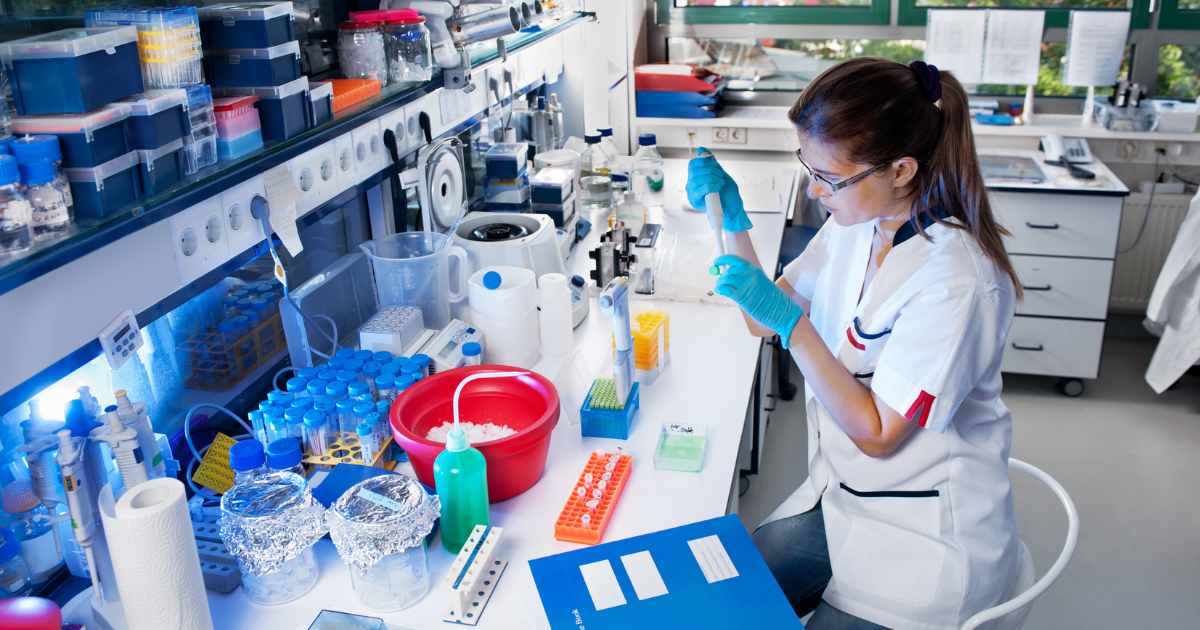Predictive Procurement: Overcoming Challenges in Health and Pharma
This blog was refreshed on October 17, 2023.
Procurement professionals of all types face a challenging and dynamic work environment. But those in the health and pharmaceutical industries grapple with an array of formidable challenges, exacerbated by the demands of the COVID-19 pandemic.
From limited supplier networks to complex buyer-supplier relationships and global market shifts influenced by geopolitical and climate factors, these challenges are multifaceted and high-stakes.
The pandemic and resulting supply chain disruptions have added extreme pressure on the health and pharma sector to address shortages quickly and efficiently. During the pandemic, healthcare needed to treat people with COVID-19, and the pharmaceutical industry had to increase the production and distribution of medical supplies and vaccines.
However, the solution lies in Predictive Procurement, a transformative approach powered by machine learning, game theory, and behavioral science. It automates labor-intensive processes, reduces errors, and expedites procurement, offering predictive pricing recommendations and bolstering efficiency. Read on to learn about the biggest Health and Pharma challenges and how Arkestro can help.

What Are the Biggest Procurement Challenges in Health and Pharma?
Beyond procurement teams working within the constraints of profit and cost savings, lives are at stake. Failure can result in shortages, public scrutiny, and worse, loss of life.
There are a lot of balls in the air, and each can have serious fallout if dropped. Here are some challenges in health and pharma procurement—and how to overcome them.
Limited Supplier Network
Relying on a limited number of suppliers can lead to back-orders and other delays. And the cost of uncertainty in health and pharma can be disastrous. For example, the peaks in demand during the pandemic exposed many organizations to delays, resulting in shortages of critical materials like PPE and ventilators.
Constrained supply chains and the associated shortages have resulted in mounting pressures for organizations to diversify their supplier bases.
It’s vital that supplies are predictable, so you can get the products and services you need. To address supplier challenges, you must ensure your preferred providers can meet your changing needs and that you have a diverse supply base.
Supply Chain Visibility
Supply chain visibility is another critical issue. Visibility provides regulatory and consumer assurance in the face of issues like counterfeiting. And many consumers and advocacy groups are sensitive to the environmental impact of products or raw materials that may be harvested using forced labor.
Under the Drug Supply Chain Security Act, any company selling pharmaceuticals in the U.S. market will have to be fully compliant with product tracing requirements (which were phased in starting in 2015) by 2023.
To combat these issues, health and pharma need supply chain visibility—all the way down the supply chain. According to McKinsey, companies can minimize supply chain disruption through “greater visibility, rigorous risk management, and newer technologies that help companies better anticipate and respond to shocks.”
Managing Supplier Relationships
The relationship between buyers and suppliers remains at the forefront of the procurement process. This is especially true in the face of the various challenges we’ve listed.
-
- Managing risk
- Meeting compliance requirements
- Advancing social responsibility
- Managing costs
- Ensuring quality
Ideally, the two work together as partners, helping to achieve procurement goals. However, managing this relationship can be challenging in the modern environment where clients and suppliers can be thousands of miles apart.
Easy communication with suppliers is vital. Procurement teams that successfully align with their key suppliers have seen improved quality, reliability, cost savings, and other critical deliverables for evaluating supplier performance.
Geographic Market Shifts
One of the biggest challenges facing pharmaceutical procurement teams is sourcing materials in a global market that constantly shifts based on geographic factors.
There are changing geopolitical situations, such as the ongoing results of the trade war between the U.S. and China. Shipments from a country that was the preferred source for an ingredient may be subject to tariffs that dramatically raise costs beyond planned schedules.
Climate change is also a massive issue. A region that was the primary source of a raw material used in drug manufacture may suffer an extreme weather event that temporarily reduces supply and raises prices. Because of climate change, that region may be moving toward being unsuitable, requiring companies to seek new sources.
Globalization means there are many variables in play for pharmaceutical and healthcare companies. And this puts intense pressure on a procurement department that needs to track, manage, and incorporate them all as part of its sourcing process.

Predictive Procurement: Solutions for Health and Pharma
When companies are under pressure to cut costs and much of procurement is experiencing an ongoing talent shortage, throwing more resources at a problem isn’t always an option.
Even though these challenges may be daunting, they aren’t impossible to manage. Predictive procurement helps pharma and healthcare teams by saving substantial time and resources, managing supplier relationships, and providing continuity of supply.
Predictive procurement leverages machine learning, game theory, and behavioral science to automate mundane labor-intensive processes, making them faster, eliminating human error, and reducing stress.
With predictive pricing recommendations, companies reduce their cycle time and allow sourcing events to run automatically. The result is a reduced reliance on manual intervention for repetitive tasks.
Predictive Procurement Supports Supply Chain Resilience and Visibility
Westfall Technik is a global contract manufacturing company that provides end-to-end manufacturing solutions for the complete lifecycle of molded plastic parts. Westfall’s portfolio of healthcare-related products features medical devices, pharmaceutical delivery systems, diagnostic tools, consumer health products, and a range of services. They use Arkestro’s predictive procurement platform to secure lower costs and ensure continuity of supply from a historically challenging supply chain.
According to David Schultz, VP, Chief Supply Chain at Westfall Technik, they captured value through the overall supply chain. “If you look at historical surveys of chief procurement officers, price has always been the top concern. This past year was the first time that it’s not price—it’s Operational Efficiency as underscored in the Deloitte Global 2021 CPO survey. If you get a great price that’s terrific, but if it doesn’t show up, does it really matter?”
Environmental, social, and governance (ESG) criteria are also critical. To meet this need, organizations like Westfall use predictive procurement to ensure they are working only with the most environmentally responsible suppliers.
Predictive Procurement Manages Supplier Relationships
Arkestro’s Predictive Procurement Orchestration platform manages all aspects of the procurement process, from real-time conversations with stakeholders and suppliers to supplier relationship management. Arkestro routes purchases to preferred suppliers and automates procurement-supplier email correspondence, which saves time, attention, and resources.
According to Schultz, Westfall has benefited from using Arkestro from the buyer’s perspective, but suppliers also gravitate to it. “Arkestro initially began the construction of this platform with suppliers in mind, and that’s crucial for long-term success. If you don’t have a supplier base that believes in the integrity and simplicity of the system, you’ve got nothing.”
Arkestro: Redefining Procurement for Health and Pharma
With the advanced technology that Predictive Procurement Orchestration offers, health and pharma organizations can analyze vast quantities of data accurately and in real time.
Arkestro isn’t just another app that helps with one aspect of the process. It’s an embedded procurement platform designed by procurement professionals for procurement professionals.
Arkestro’s Predictive Procurement Orchestration platform helps procurement teams
- Leverage always-on validated data for better and faster decision-making at scale
- Avoid supply chain delays
- Improve risk management
- Play a critical role in their organization
- Maximize cost savings
Companies like Westfall Technik are leveraging Arkestro’s Predictive Procurement platform to navigate these complexities, ensuring supply chain resilience, compliance, and cost control. With Arkestro, healthcare and pharma organizations can analyze data in real time, make informed decisions, and optimize their procurement processes, ultimately safeguarding lives and enhancing efficiency in this critical sector.
Schedule a demo to learn how your pharma organization can benefit from Arkestro’s Predictive Procurement Orchestration platform.
